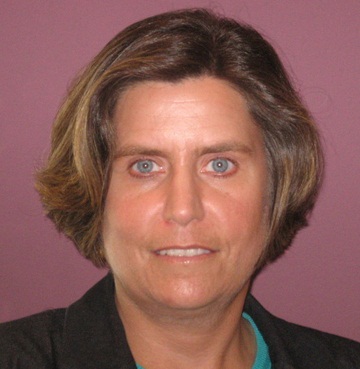- About Archives
- About SAA
- Careers
- Education
- Publications
- Advocacy
- Membership
 Professional Experience: Soroptimist International of the Americas: Senior Director of Information Services, 2005–present. Cybrarian, 2002–2005. Records/Archives Manager, 1993–2002. General Federation of Women’s Clubs, Women’s History and Resource Center Coordinator, 1989–1993. MARAC New Jersey Caucus Archival Preservation Evaluation Service (CAPES) consultant, 1998–present. New Jersey Public Archives and Records Infrastructure Support (PARIS) grants reviewer, 2005–2009.
Professional Experience: Soroptimist International of the Americas: Senior Director of Information Services, 2005–present. Cybrarian, 2002–2005. Records/Archives Manager, 1993–2002. General Federation of Women’s Clubs, Women’s History and Resource Center Coordinator, 1989–1993. MARAC New Jersey Caucus Archival Preservation Evaluation Service (CAPES) consultant, 1998–present. New Jersey Public Archives and Records Infrastructure Support (PARIS) grants reviewer, 2005–2009.
Education: MLIS, Rutgers, 2006. MA, History, University of Massachusetts–Amherst, 1992. BA, History, James Madison University, 1987.
Professional Activities: Society of American Archivists: Pre-publication peer reviewer. Mid-Atlantic Archives Conference: Chair, 2003–2005. Steering Committee member at-large, 2001–2003. Committee Chair: Distinguished Service Award, 2005–2007; Development Committee, 2005–2006; Membership Development Committee, 1998–2002. Co-chair, Local Arrangements Committee: Philadelphia, 2001; Scranton, 2007; Philadelphia, 2013. Member, Finance Committee, 2010–present; Committee on Administrator Contractual Evaluation, 1999–2003; Conference Program Committee, 1997, 2007. New Jersey Caucus CAPES Advisory Committee, 2008–present. Session presenter or moderator at seven conferences. New Jersey State Historical Records Advisory Board, 2004–present. Archives Leadership Institute, 2011. Delaware Valley Archivists Group, 1995–present.
* * *
Question posted by Nominating Committee: SAA is not only growing in numbers, but also in constituencies—students and new professionals, diverse communities, emerging functional needs—all clamoring to be recognized and have specific needs addressed. What challenges are posed for the association and how do we best address them?
I believe SAA is at a crossroads, and its greatest challenge is the need for a critical re-evaluation of what the organization does (or doesn’t do), why and how, in order to meet the changing needs and demands of the membership.
My overarching concerns as a Council member will be two-fold. First, I will work to put that re-evaluation process in place, and encourage an attitude of innovation, openness, and risk-taking if necessary, as we undertake that process. To innovate, we also must ensure SAA has the resources to make the leap to the new or different. Reserves need to be increased, and current funding may need to be reallocated to different areas. I believe one of the prime responsibilities of the Council, or any board, is to keep the organization looking and moving forward, not stagnating, or perpetuating the “we have always done it this way” or the “we can’t do this” mentality. Change is difficult, but can be empowering. As archivists, we have already overcome so many of these situations successfully in our repositories, and I am confident we can do so for our professional organization.
My second concern will be the professional needs of archivists. There has been a great deal of talk about social justice in SAA. In my view, social justice in the context of SAA must be focused on promoting, to the public and resources allocators, the importance of the documentary record in all its diversity, and why professional archivists, in all of our diversity, need to be caring for these records. SAA must develop messaging that clearly states the impact of our work and the need for our profession, and enable the saturation of that message at every level by every member. In the end, we must do everything we can to ensure there are jobs for our members through our advocacy efforts, and that salaries reflect the professional nature of our work. We must continue efforts to provide our members with accessible continuing education to keep their skills current in the core areas of the profession, as well as in ever-changing uses of technology, and increasingly in management, as well as public relations and awareness. We must ensure our members have access to other archivists from across the spectrum of the profession so we can learn from each other. For all of SAA’s attention on the next generation of archivists, and the laundry list of awards the organization bestows on its own, I find it a concern there is no organizational assistance for non-student archivists in this country to attend the SAA annual meeting, even when we know that many professional archivists have little or no institutional support to attend the meeting. SAA must focus on decreasing the barriers to engaging with the organization, and within the profession. Acknowledgement of member concerns, even when there is no quick fix and an openness to new ideas must be of prime importance within the organization, and will be of prime importance to me if elected.